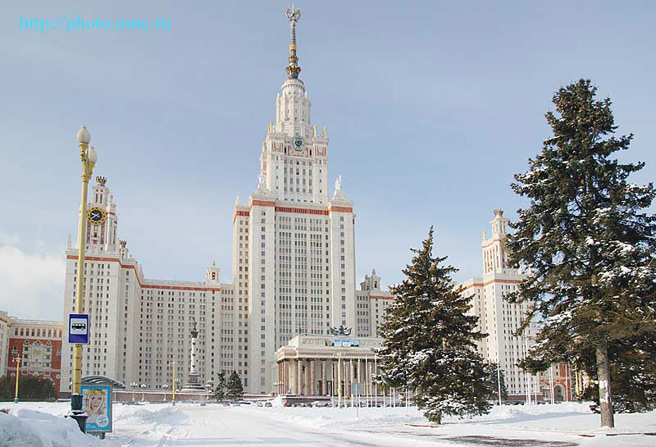|
|
Moscow State UniversityMoscow State University is the largest and leading center for science and classic education in Russia and is part of the national heritage. Students graduate at 39 faculties with over 130 academic degrees, PhD students and postdoctoral fellows work at 28 faculties with about 170 degrees within 18 areas of science, which meets well the today’s academic standards. The University trains over 40,000 students and young generation scientists, and about 10,000 secondary school children. Research and education are combined during the work in museums and training centers, field trips and expeditions. The Main Building is the heart of the University, which produced many schools of thought and prominent research leaders rewarded the Nobel Prize and prestigious national awards. Form the 18 Nobel Prize laureates in Russia 11 either graduated from or worked at the University. Over the last decade, more than 40 research achievements by the University teams were honored with the State Prize of the Russian Federation. Research and education at the University is maintained by a unique community of tutors and scientists. They count over 2,500 doctors of science, about 6,000 Ph.Ds and over 5,000 of professional and teaching staff. The University employs over 300 full and corresponding members of the Russian Academy of Science and disciplinary academies. More than 4,500 scientists are involved in fundamental and applied research within more than 350 high priority directions and federal programs. The Faculty of Biology is a large center for science and education, with 28 chairs, over 50 research labs, five special discipline labs, two biostations , Zoological Museum with a unique collection sampled worldwide, a Botanical Garden and its affiliated branch.
|
| © 2009 MolPhy All rights reserved. |
Created by — Global-Arts |





